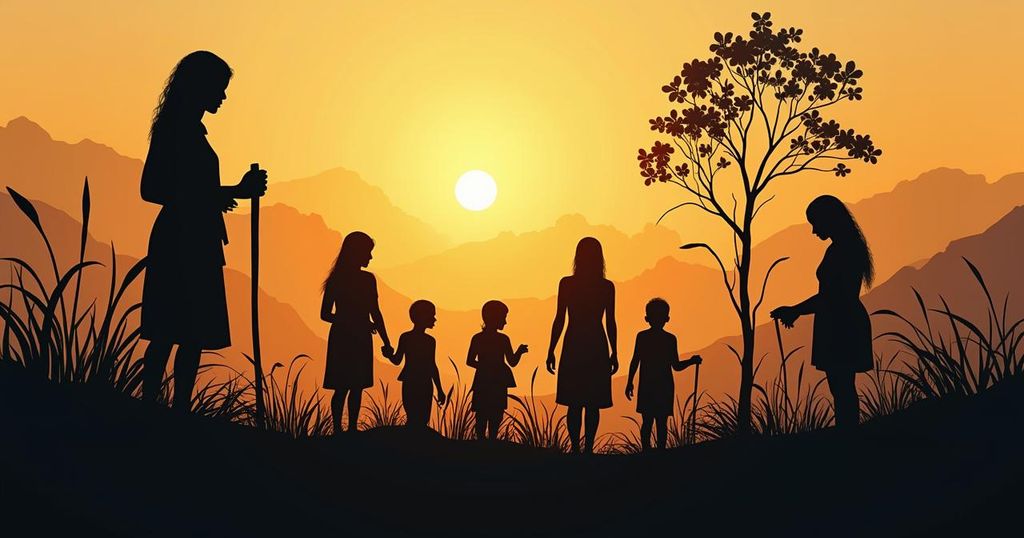The article examines the impact of biodiversity loss and environmental crime on women in rural and indigenous communities, particularly in the contexts of Ecuador, Mexico, Cameroon, and Indonesia. It highlights how illegal extractive activities disrupt local gender dynamics, endangering women’s safety and livelihoods. Despite facing patriarchal constraints, women are increasingly mobilizing as environmental defenders, advocating for their rights and the conservation of their ecosystems.
The ongoing discourse surrounding environmental crime includes the critical issues of biodiversity loss and human-induced environmental degradation. Communities residing near ecologically rich areas, particularly indigenous populations, are profoundly impacted by such environmental changes. In regions characterized by forests, mountains, and marine ecosystems, the influx of illegal extractive activities—such as mining and logging—draws outside male populations into these locales, thereby altering local gender dynamics and often resulting in increased threats to women’s safety. Women, traditionally responsible for domestic activities requiring access to forested areas, face heightened risks due to these disruptions. Their experiences are shaped by distinct socio-cultural contexts, with the ramifications of environmental degradation varying significantly across communities, often influenced by entrenched gender roles and patriarchy. The Resilience Fund has initiated an examination of these challenges through a policy brief that highlights the struggles, adaptations, and responses of women in rural and indigenous areas to the detrimental impacts of environmental crime and biodiversity loss. The analysis encompasses case studies from four diverse forest ecosystems: the Arajuno forests in the Ecuadorian Amazon, the Sierra Tarahumara forests in Mexico, the Yabassi forests in Cameroon, and the rainforests of North Sumatra in Indonesia. Despite facing barriers imposed by gender norms and systemic patriarchy, women within these communities are increasingly vocal in their resistance to illegal extractive operations. Many have emerged as pivotal environmental defenders, emphasizing their drive to safeguard their livelihoods and the ecosystems upon which they depend. Although women’s resilience strategies exhibit similarities, they reflect context-specific adaptations shaped by local realities. Their mobilization often manifests through acts of solidarity aimed at challenging dominant narratives and advocating for indigenous rights and environmental justice. This policy brief, funded by UK aid, aims to shed light on these critical but often overlooked intersections of gender, environmental crime, and biodiversity, highlighting the essential role of women in environmental advocacy and community resilience.
The issue of environmental crime, characterized primarily by illegal activities that lead to environmental degradation, poses a significant threat to biodiversity and the livelihoods of rural and indigenous communities. Such communities, deeply intertwined with their natural environment, rely on the rich resources provided by forests and other ecosystems. However, the encroachment of illegal extractive industries disrupts these traditional ways of life, exacerbating existing inequalities, particularly those based on gender. The article explores the intersections of these dimensions through the lens of women’s experiences across various global contexts, detailing how patriarchal structures often marginalize their voices while highlighting their emerging roles as environmental advocates.
The policy brief underscores the intricate relationship between environmental degradation, biodiversity loss, and the distinct experiences of women in impacted rural and indigenous communities. It reveals that while women face systemic barriers, their increasing participation in environmental advocacy presents a promising shift toward challenging established patriarchal norms. This evolution not only reflects their resilience and adaptability but also emphasizes the importance of including their voices in the conversation around environmental protection and community rights.
Original Source: reliefweb.int






